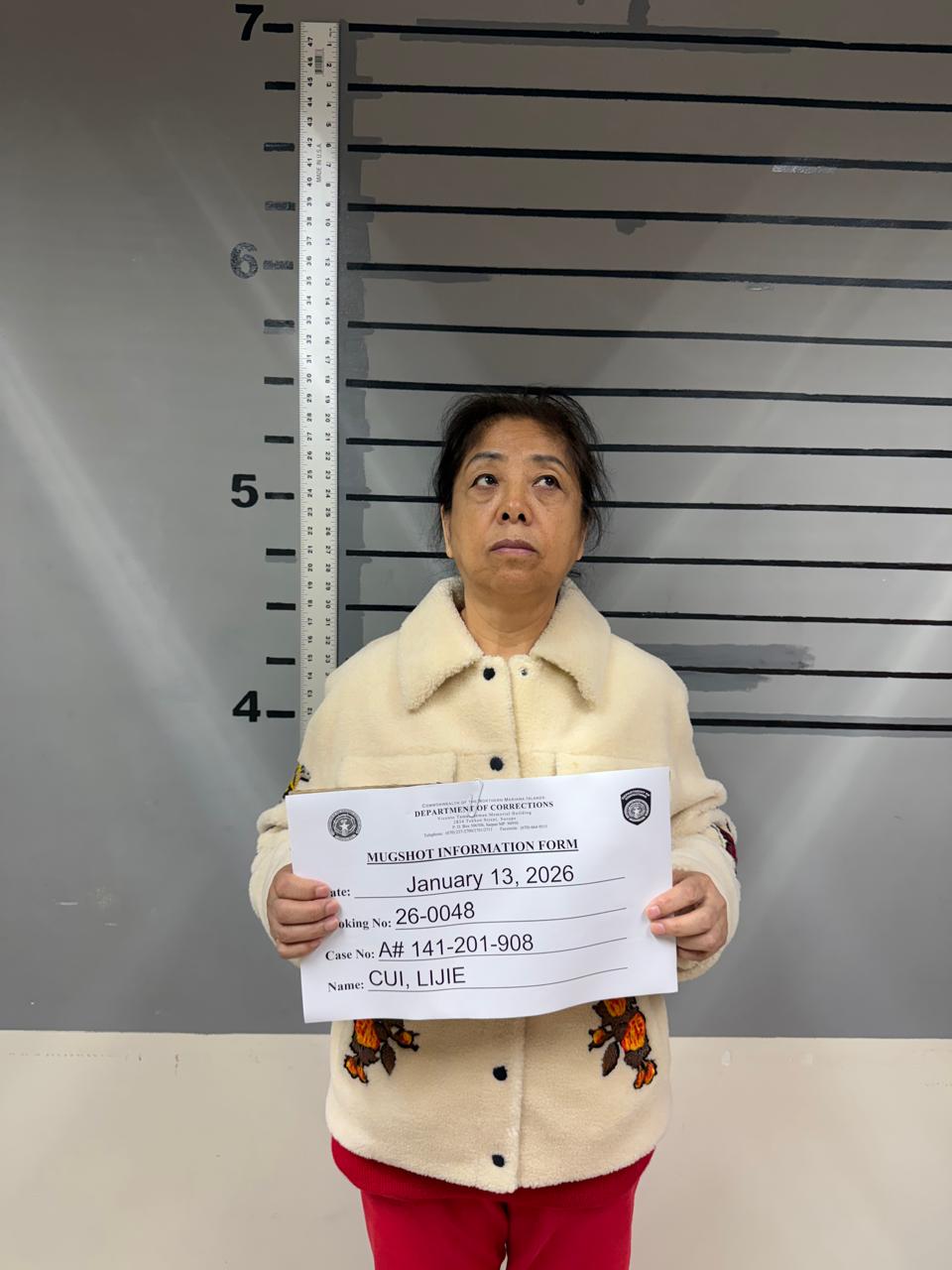
JUDGE Pro Tempore Arthur Barcinas has granted the motion of the Office of the Attorney General for a stay of the order disqualifying Assistant Attorney General James Kingman and the OAG from prosecuting former Gov. Ralph DLG Torres due to a conflict of interest.
In a seven-page order issued on Oct. 15, 2024, Judge Barcinas said the “court does not necessarily find that disqualifying the OAG would completely deprive the executive branch of its authority to prosecute, as the Office of the Public Auditor could still elect to prosecute the [former] governor in the OAG’s stead….”
However, the judge also found that the OAG “has presented a unique and colorable argument that the disqualification order, though a rare instance based on the unique facts of this case, is appealable because of potential constitutional issues.”
“The Court concedes that some harm may result but does not necessarily agree that the harm is irreparable because there are other ways to address the harm as the constitutional structure already allows for other forms by which prosecution may be pursued under this set of facts,” the judge said.
“If the trial were to go forward and a jury were to find Defendant not guilty, there would be no way for the Commonwealth to remedy the final decision. Because such an outcome would effectively remove the Commonwealth’s ability to seek a conclusive resolution of this issue, the Court finds that the potential harm would be irreparable,” the judge added.
He noted that the OAG has argued that courts in other jurisdictions have recognized that a disqualification of an entire prosecutorial office implicates separation of powers concerns, and that the CNMI Supreme Court has not yet addressed this issue in the context of an elected attorney general.
“Despite the facts that the Commonwealth has pointed out, there is no significant change in authority or powers between an elected and an appointed Attorney General under the current law,” Judge Barcinas said.
“The court finds that the OPA is also empowered by statute to prosecute the [former] Governor pursuant to 1 CMC § 7847, and that the executive branch is thus not completely without the authority to prosecute. Constitutionally, the question becomes whether, under these circumstances, another department or entity within the executive branch can continue the prosecution,” the judge said.
He agreed, however, that “where separation of powers issues is alleged and arise as in this case, the guidance of the Supreme Court would help to address and resolve those issues before further proceedings in this case and the eventual rendering of a verdict at trial.”
In issuing his order, the judge said he also considered that the “defendant is not incarcerated nor is there a demand for a speedy trial in the current posture of the case.”
He also noted that the defense has indicated that they had no objection to continuing the pending hearings until the appeal has been addressed, “further supporting a finding that a stay would not cause undue harm or delay.”
According to the judge, to the “extent that the disqualification of the OAG raises important questions about the separation of powers, the court finds that those questions should be resolved by the CNMI Supreme Court before further proceedings in this case.”
Disqualification order
In a 16-page order issued in July 2024, the judge granted the defense motion for reconsideration as well as the motion for the OAG to withdraw or be disqualified as prosecutor in case no. 22-0050-CR (misconduct in office) due to conflict of interest.
But Judge Barcinas declined to appoint a new special prosecutor, saying that the court “defers to the executive branch to execute its prosecutorial authorities in the case.”
The judge also disqualified the OAG and Kingman from prosecuting a related case, the refiled separate charge of contempt and misconduct in public office against the former governor (23-0127-CR).
Following the disqualification order, the OAG, through Chief Solicitor J. Robert Glass Jr., filed a notice of appeal in the CNMI Supreme Court, saying that the judge “misapplied the law in disqualifying the entire OAG.”
Recently, Glass requested the Superior Court to issue a stay of its order disqualifying Kingman and the OAG, and a stay on all further case proceedings until the OAG’s appeal has been resolved by the CNMI Supreme Court.
The defense, in its opposition, argued that “under Commonwealth case law, the Supreme Court lacks jurisdiction to hear interlocutory appeals of disqualification orders,” and the OAG’s appeal is invalid.”
The defense also stated “that the 2018 constitutional amendment that made the Attorney General an elected office did not bestow any new powers or authority on the office, and thus the disqualification of the OAG does not raise constitutional concerns.”
Background
In December 2021, then-Governor Torres, a Republican, was found by a Democrat-Independent-led House Judiciary and Governmental Operations Committee in contempt of a legislative subpoena for refusing to appear before the panel, which was investigating his public expenditures.
On April 8, 2022, the Office of the Attorney General charged the former governor with 12 counts of misconduct in public office and one count of theft relating to the issuance of airline tickets for business class, first class, or other premium class travel for himself and/or Diann T. Torres, his wife. The OAG also alleged one count of contempt for failure to appear in compliance with a legislative subpoena.
The former governor has denied the charges.











